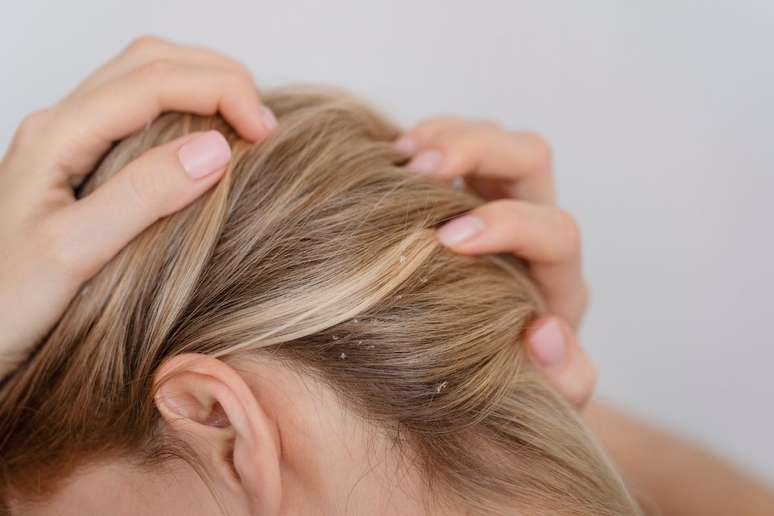Have you noticed that your dandruff gets worse during colder days? Find out what to do to deal with it!
During the winter, those who suffer from dandruff You may notice a worsening of the condition, as dry air and low temperatures cause the scalp to dry out.
Furthermore, to protect themselves from the cold, many people end up using them hats or caps over a prolonged period, which can dull the scalp, increasing oiliness and contributing to the growth of fungi in the region.
“It’s worth noting that on colder days, people tend to take hotter and longer showers, which can strip the scalp of natural oils,” says Dr. Joao Gabriel Nunestrichologist.
Another factor that can aggravate dandruff during the winter is going too long without washing your hair, according to Dr. Letycia Lopesdermatologist. Find out more below!
What is dandruff? What are the symptoms?
“Dandruff occurs when dead skin cells accumulate on the scalp and form white or yellowish flakes that may be visible in the hair and also fall onto the shoulders,” summarizes the Dr. Letycia Lopesdermatologist.
You symptoms This problem includes flaking, itching, redness, irritation and burning sensation on the scalp. In more severe cases, excessive hair loss may occur.
“The risk factors for dandruff are various, for example excess sebum, genetic influence, stress, insufficient hair washing, prolonged use of accessories on the head, smoking and taking certain drugs”, lists the trichologist.
Which areas are most affected by dandruff?
Although it is more common on the scalp, dandruff can appear other areasincluding the eyebrows, eyelids, edges of the nose, behind and inside the ears, beard and moustache, according to Dr. João.
How is dandruff treated?
There is no cure for dandruffTherefore, the main goal of treatment is to relieve and control symptoms.
To identify the ideal treatment, it is necessary to count on the help of a professional, so that he can carry out a personalized evaluation of your case, investigating the triggering causes and the severity of the disorder.
“Shampoos based on antifungals or based on active ingredients such as salicylic acid and zinc pyrithione may be recommended”, specifies the Dr. Luciana Passonireference doctor in hair sciences and CEO of the Passoni Clinic.
“In more severe situations, oral or injectable antifungal medications may be necessary,” says the trichologist.
Changes in diet It can also help fight dandruff. “It’s recommended to eat more foods that are rich in zinc, healthy fats, and B vitamins,” Nunes advises.
“Since stress can be a trigger for dandruff, it’s important to take care of your mental health to reduce the symptoms of the problem,” adds the CEO.
How to avoid dandruff in the cold?
For prevent dandruff from getting worse in the coldHere are some essential tips:
- When bathing, do not use high temperature water;
- Don’t continually scratch your scalp, to avoid worsening the irritation;
- Wash your hair regularly with a mild shampoo;
- Try to reduce stress;
- Follow a balanced and nutrient-rich diet;
- If you plan to use a hair dryer, it is best to leave the tool on cold or hot mode;
- Don’t sleep with wet or damp hair;
- Do not wear hats or caps for a long time;
- Consult a dermatologist.
Source: Terra
Ben Stock is a lifestyle journalist and author at Gossipify. He writes about topics such as health, wellness, travel, food and home decor. He provides practical advice and inspiration to improve well-being, keeps readers up to date with latest lifestyle news and trends, known for his engaging writing style, in-depth analysis and unique perspectives.








